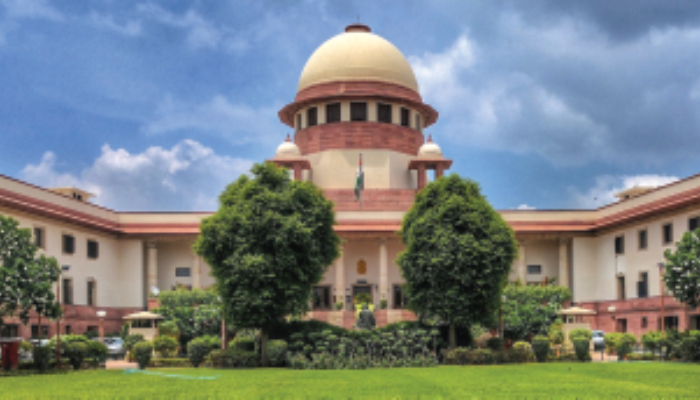
or

This is my first-hand view of a parallel backchannel of mediation as a strategic counsel to the heads of the parent bodies of both Nirwani and Nirmohi Akharas in the resolution of the Ram-Janmabhoomi-Babri Masjid Dispute.
The hot summer morning in June 2019, after a short pre-dawn flight, I touched at Lucknow to be greeted by Mahant Dharamdas. Following a two hours’ drive to Ayodhya, as we veered from the highway to drive into the state government guest house on the outskirts of Ayodhya, the heavy security arrangements betrayed the presence of very eminent persons.
Seeing the SC-appointed mediators Sri Sri Ravishankar, former Justice F.M. Ibrahim Kalifulla and Sriram Panchu work in tandem, their positivity and must-do approach could not be missed.
As counsel for (i) Mahant Dharam Das head of all the Nirwani Akhadas and successor of Mahant Abhiram Das, who had placed the idols of Ram Lala in the central dome of the Babri Masjid on the intervening night of December 22-23, 1949 and (ii) Mahant Rajendra Das, head of the parent body of all the Nirmohi Akhadas, the responsibility on me was to navigate through the legalese and to be a bridge between these holy souls and the mediation process towards resolution of the dispute.
This dispute, which related to the efforts of Mahant Abhiram Das at the Ram Janmabhoomi as referred in para 4 above, had thereafter seen many claimants stepping forward on both sides, for various reasons. While the worship of birthplace of Lord Rama reflected the belief of all Hindus, some claimed to title of some portions of the said land hile others claimed a right to possession and development of the said birth place into a temple.
Our determination and resolve to settle the disputes amicable came across from the mediators in their handling of the issues, for the:
*Need to see both sides feeling recognised and healed,
*Need to ensure that the issue be not allowed to be dealt with, without the involvement of all stakeholders as against individual claimants for a sustained resolution of the dispute,
*Need to have an inclusive resolution to the dispute,
*Need to ensure that such disputes don’t reoccur in other places of worship, and here remains a sense of equity and constitutional values.
However, even after many fire-side meetings, a report of a failed mediation was filed thus paving way for day-to -day hearing commencing on 6th August 2019. Thereafter in mid-September 2019, the Supreme Court again permitted parties to resume mediation without affecting the ongoing day to day hearing.
The possibility to achieve the resolution of the dispute on principles of equity and constitutional values once again came as a windfall opportunity, I was privileged to again work with the three noble souls who were swiftly back on the white board, as committed as before.
Following the resumption of mediation, the deep efforts of the mediators as also those of Mahant Dharamdas, amongst others, made the closure of the dispute appear closer and clearer on the same equitable and constitutional principles discussed in para 7 above.
As the proceedings closed and later the Supreme Court pronounced its judgment, it,
Business Leaders have hailed the judgment as ‘historic’ and ‘courageous’ and welcomed the onset of peace, harmony, trust and stability amongst the people of India. India emerges with a stronger and deeper on business confidence and long-term stability of businesses.
From a macro view, construction, infrastructure, river development, tourism and hospitality are likely to be benefitted, apart from foreign capital finding Indian markets far more stable and secure on religious conflicts parameters.
Social harmony & freedom of right to belief, the corner stone of the Constitution, remain the corner-stone of this judgment too. Not surprising therefore to see Businesses are giving a toast to the Supreme Court Judgment.
Dr. Manoj Kumar is the Founder of Hammurabi & Solomon & Visiting fellow with Observer Research Foundation, New Delhi.

Lex Witness Bureau

Lex Witness Bureau

For over 10 years, since its inception in 2009 as a monthly, Lex Witness has become India’s most credible platform for the legal luminaries to opine, comment and share their views. more...
Connect Us:


The Grand Masters - A Corporate Counsel Legal Best Practices Summit Series
www.grandmasters.in | 8 Years & Counting
The Real Estate & Construction Legal Summit
www.rcls.in | 8 Years & Counting
The Information Technology Legal Summit
www.itlegalsummit.com | 8 Years & Counting
The Banking & Finance Legal Summit
www.bfls.in | 8 Years & Counting
The Media, Advertising and Entertainment Legal Summit
www.maels.in | 8 Years & Counting
The Pharma Legal & Compliance Summit
www.plcs.co.in | 8 Years & Counting
We at Lex Witness strategically assist firms in reaching out to the relevant audience sets through various knowledge sharing initiatives. Here are some more info decks for you to know us better.
Copyright © 2020 Lex Witness - India's 1st Magazine on Legal & Corporate Affairs Rights of Admission Reserved